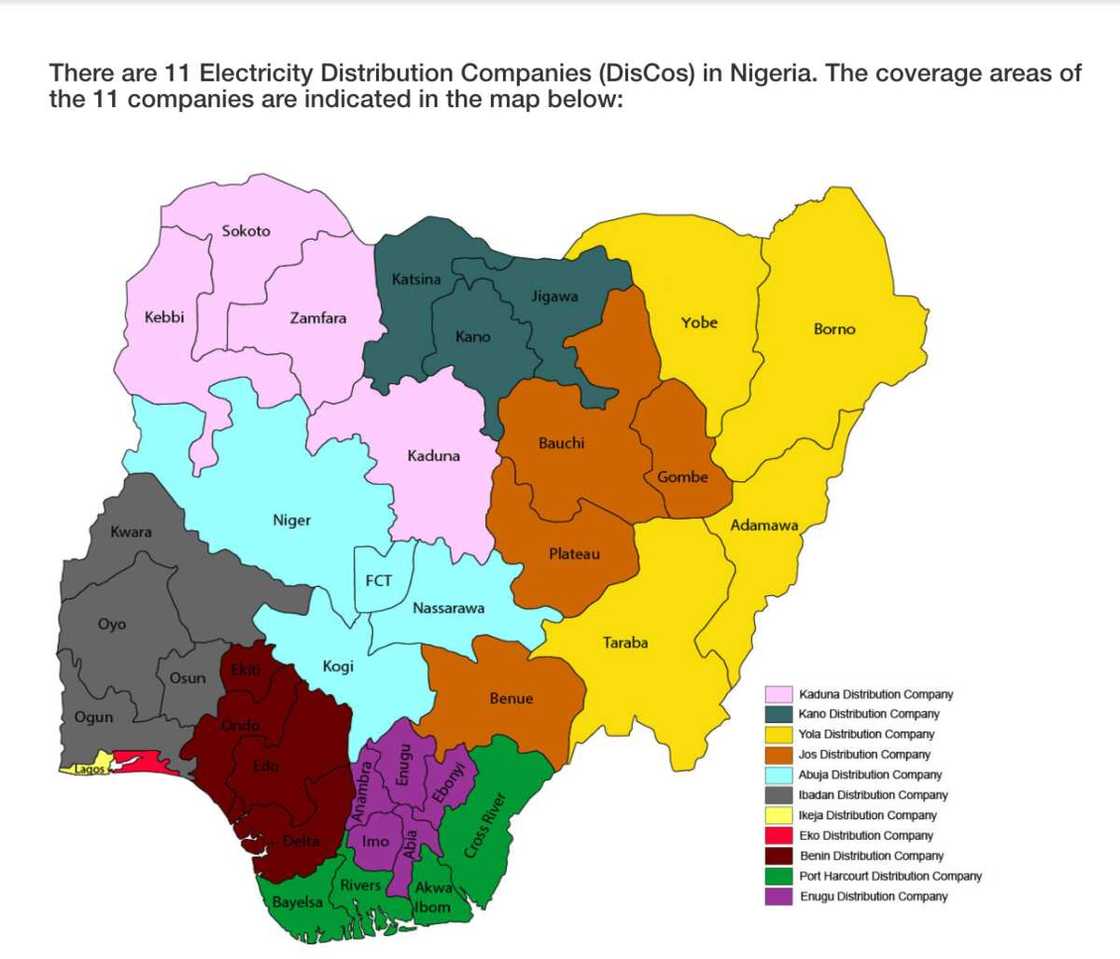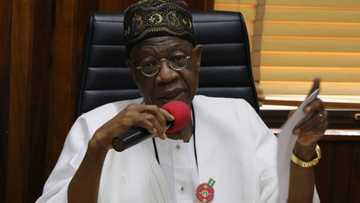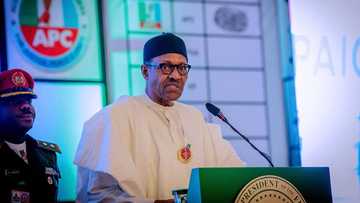Nigeria's Peak Power Generation Drops to 4,552.80MW when the country needs 28,850MW for a stable supply
- Nigeria's peak power generation is still far below the national peak demand despite the continuous promise of a stable supply
- According to the Nigerian Electricity System Operators, the highest even peak power generation is 5801.6MW
- However, the operator forecasts Nigeria would require at least 28,850MW of power to fulfil the country's electrical demand
PAY ATTENTION: Click “See First” under the “Following” tab to see Legit.ng News on your Facebook News Feed!
Nigerians long wait for a stable power supply continues as the country's peak power generation has again dropped by 12% to 4,552.80MW on Thursday, 28 October 2021, from 5103.21MW it stood seven days go.
The figures which are contained in the latest operational report by the Nigerian Electricity System operators also put Nigeria's peak demand at 28,850MW.
What this implies is that the gap between the peak power demand by Nigerians and what the country is generating is over 20,000MW.

Read also
Exercise Books, Textbooks, other Print materials to Become more Costly as Cost of Paper Imports hit N1.23trn
Currently, Nigeria has a grid generating installed capacity of 13,014.40MW. However, only 7,652.60 of that capacity is accessible to generate power.

Source: Facebook
Do you have a groundbreaking story you would like us to publish? Please reach us through info@corp.legit.ng!
Minister of power reacts
The Minister of Power, Abubakar Aliyu, has asked Nigerians to be patient with the administration as it works to improve the country's electricity supply.
In a statement issued to mark his 50 days in office, Aliyu said the service quality was making it difficult for the sector to grow as desired.
He said:
"I am fully aware Nigerians are not enjoying quality power supply, stating that efforts are being made to address this issue, we are working to fix this."
He also stated that the quality of service such as hours of power supply, voltage, disputed or estimated bills, is less satisfying to many people but noted that the federal government has always had to provide financial support to cover the shortfall on payment made by consumers to distribution companies (DisCos) as it does not suffice for the full investment and costs of the generating companies (GenCos).
According to him, this has resulted in a huge burden on the government which is unsustainable.
However, he disclosed that the federal government through the sector was committed to implementing its key power projects to give Nigerians more access to electricity.
Aliyu continues:
"These key projects to be completed, he said, are the Kashimbilla 40 MW Power Station in Taraba State which had already begun generating power for the National grid, and the Gurara Phase 2 project which is being implemented in collaboration with the Ministry of Water Resources and is to deliver 30MW to the grid.
“The Zungeru Hydroelectric Power Project is progressing towards completion next year, to deliver another 700MW of renewable power. Katsina wind farm, with a full capacity of 10MW, is already generating part of its full capacity for the grid.
“The first phase of the PPI is the upgrading and expansion of the vital infrastructure of the Transmission Company of Nigeria (TCN) and the Distribution Companies (Discos) with the goal of achieving the 7,000MW."
FG Imposes fresh electricity tariff increase
The Nigerian Electricity Regulatory Commission has approved an upward review of electricity tariffs in the country.
The decision by the commission was communicated in a document to electricity distribution companies.
The Nigeria Labour Congress which has been advocating against any electricity tariff increment has not yet reacted to the new development.
Source: Legit.ng



